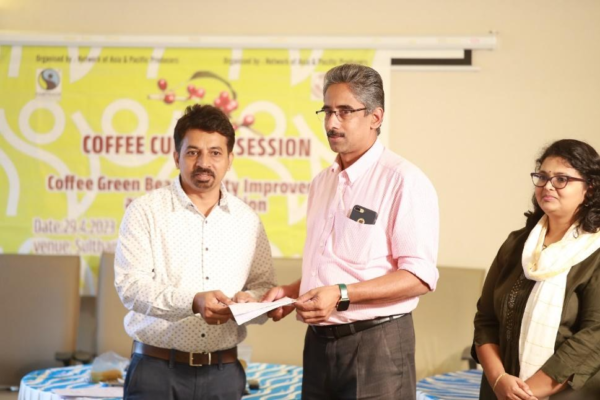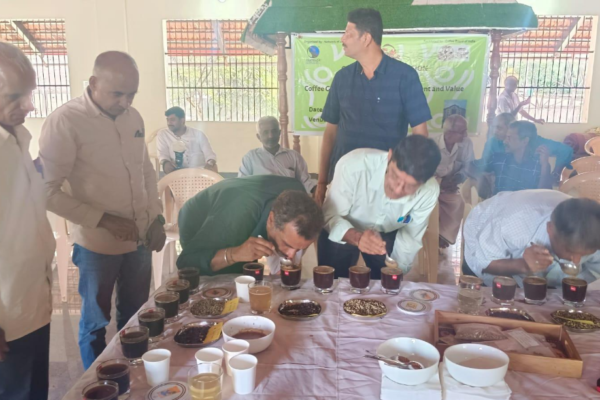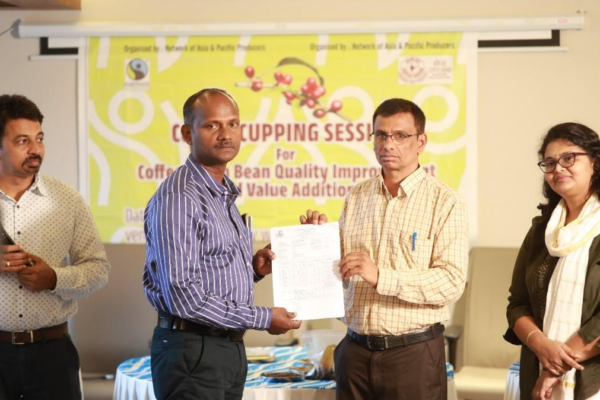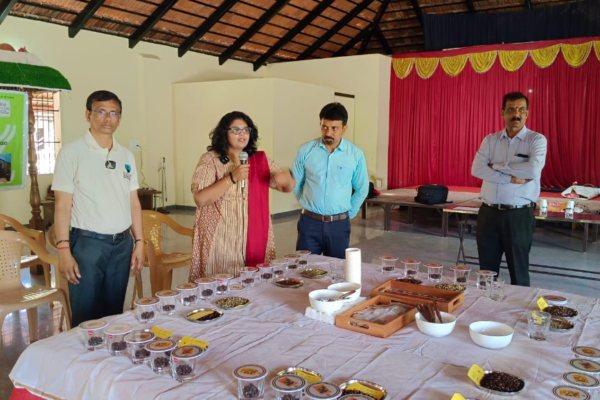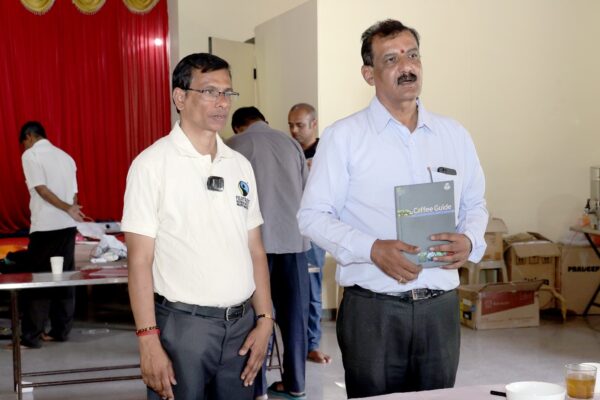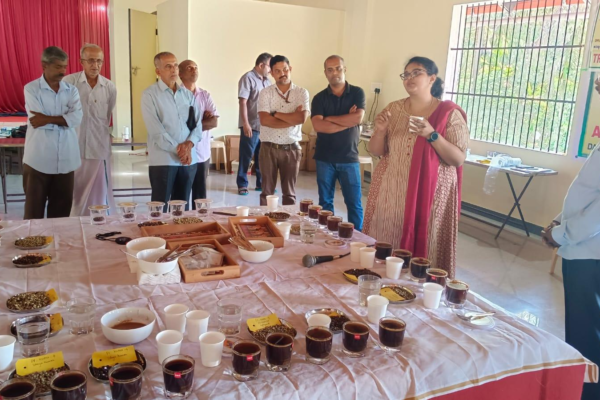Coffee cupping is a crucial evaluation technique used by the coffee industry to assess the aroma, flavour, and overall quality of coffee beans. One of the key benefits of cupping is its ability to enable accurate flavour profiling. Experts can discern and describe the intricate flavours and aromas found in different coffees, allowing for effective communication between producers, roasters, and consumers. This helps in categorizing and describing the coffee accurately which drives continuous improvement within the coffee industry and contributes to the advancement of the field. Given its importance, Fairtrade NAPP organized a coffee cupping sessions under the Fairtrade Coffee Development Plan 8 producer organisations from Kerala and Karnataka. The event was facilitated by the Coffee Board of India and participated by 63 producer members.
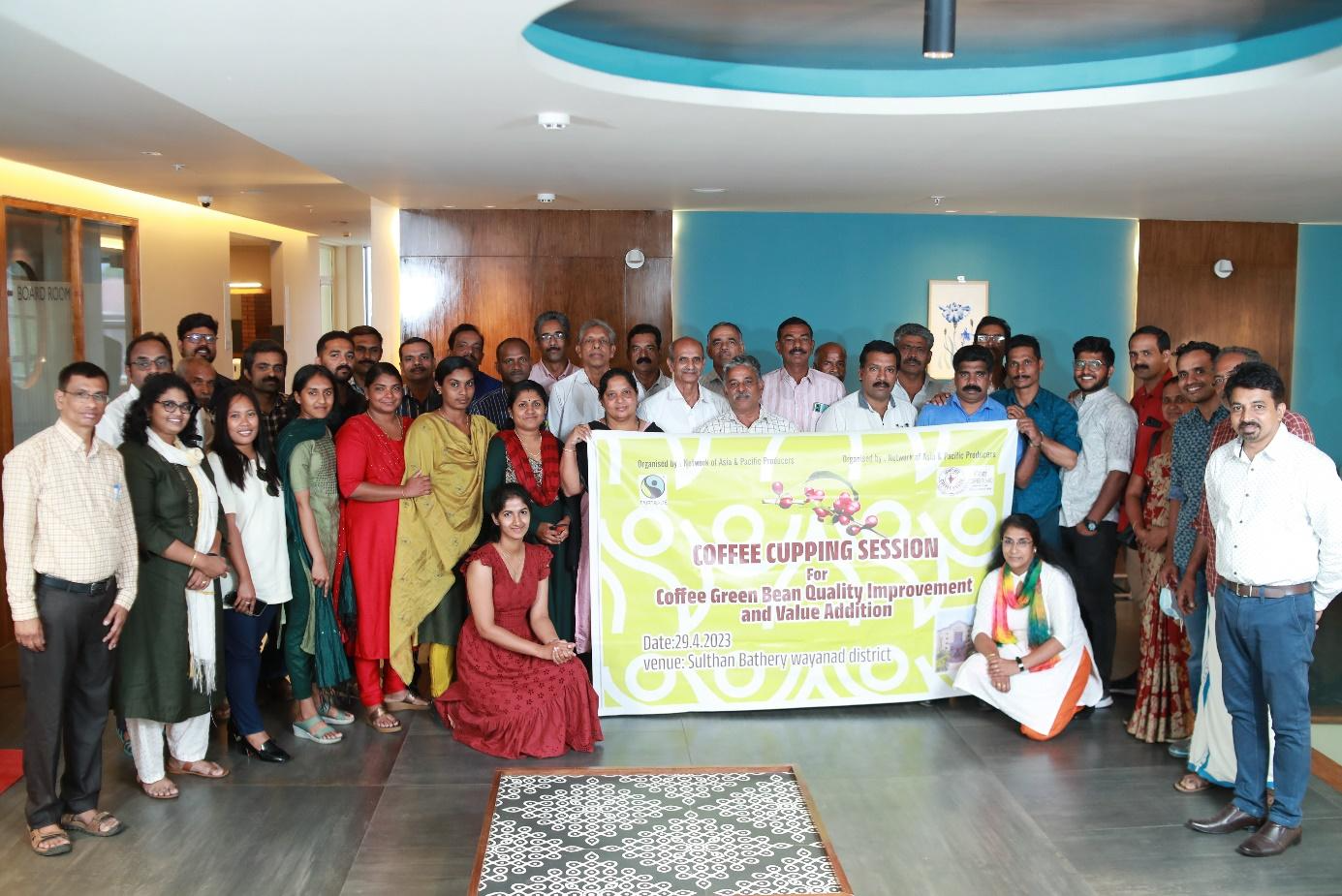
Coffee Cupping Session from Kerala
During the cupping session, scientists from the Coffee Board conducted the evaluation and session to make farmers aware of the significance of coffee cupping scores which reflects the coffee quality. This, in turn, facilitates the determination of coffee prices. The cupping process involves evaluating various attributes, including acidity, body, sweetness, and aftertaste, which helps determine if the desired standards are met by the beans for quality control.

Coffee Cupping Session from Karnataka
The Coffee samples were first collected from the farmers directly by the Coffee Board scientists which were later hulled, roasted, ground and cupped in the Coffee Board Laboratory. The farmers had the opportunity to check their own coffee samples based on various parameters such as aroma, flavour, and acidity among others. It was a holistic experience to understand the assessment of coffee quality based on these different parameters. The cupping report included valuable feedback and insights for the producers. Additionally, counter samples were carried out at the Cupping session for a valuable demonstration to the farmers where the official explained various coffee quality parameters and emphasized the significance of following good agricultural practices throughout the harvest and post-harvest handling and processing stages.
The event served as a platform for the Fairtrade producers to understand the importance of producing high-quality beans and the impact that defective beans can have on coffee quality. The knowledge and insights gained by the members through the cupping seasons will aid them in the production of good-quality coffee beans.
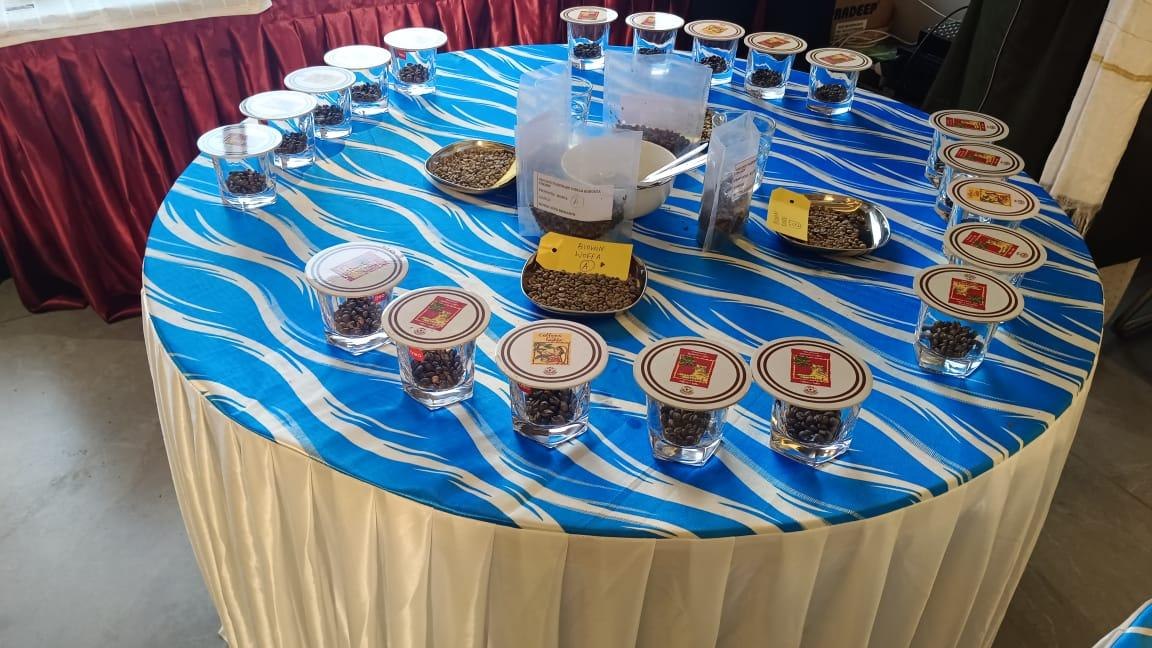
Testimonials
“We never thought of so many parameters being assessed to check the quality. It was a very good awareness programme for all of us. We could check the aroma, flavour, sweetness, and bitterness among others in various samples which was a great experience for us.”
– Jessy Thomas, Malabar Agricultural Society, Kerala
“It was a very good session. Most of the farmers here are witnessing the cupping session for the first time and have understood the importance of cupping and how it determines the quality. It was a good exposure for everybody.”
– Prasanna Kumar, Prasanna Ganapathi Farmers Foundation, Karnataka



